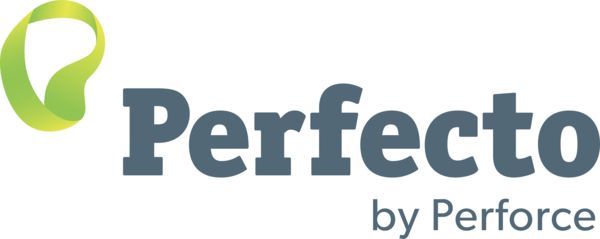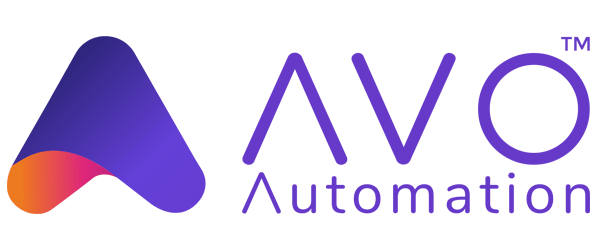Chrome DevTools
While Selenium 4 provides direct access to the Chrome DevTools Protocol (CDP), it is highly encouraged that you use the WebDriver Bidi APIs instead.
Many browsers provide “DevTools” – a set of tools that are integrated with the browser that developers can use to debug web apps and explore the performance of their pages. Google Chrome’s DevTools make use of a protocol called the Chrome DevTools Protocol (or “CDP” for short). As the name suggests, this is not designed for testing, nor to have a stable API, so functionality is highly dependent on the version of the browser.
WebDriver Bidi is the next generation of the W3C WebDriver protocol and aims to provide a stable API implemented by all browsers, but it’s not yet complete. Until it is, Selenium provides access to the CDP for those browsers that implement it (such as Google Chrome, or Microsoft Edge, and Firefox), allowing you to enhance your tests in interesting ways. Some examples of what you can do with it are given below.
Emulate Geo Location
Some applications have different features and functionalities across different locations. Automating such applications is difficult because it is hard to emulate the geo-locations in the browser using Selenium. But with the help of Devtools, we can easily emulate them. Below code snippet demonstrates that.
ChromeDriver driver = new ChromeDriver();
DevTools devTools = driver.getDevTools();
devTools.createSession();
devTools.send(Emulation.setGeolocationOverride(Optional.of(52.5043),
Optional.of(13.4501),
Optional.of(1)));
driver.get("https://my-location.org/");
driver.quit();
from selenium import webdriver
from selenium.webdriver.chrome.service import Service
def geoLocationTest():
driver = webdriver.Chrome()
Map_coordinates = dict({
"latitude": 41.8781,
"longitude": -87.6298,
"accuracy": 100
})
driver.execute_cdp_cmd("Emulation.setGeolocationOverride", Map_coordinates)
driver.get("<your site url>")
using System.Threading.Tasks;
using OpenQA.Selenium.Chrome;
using OpenQA.Selenium.DevTools;
// Replace the version to match the Chrome version
using OpenQA.Selenium.DevTools.V87.Emulation;
namespace dotnet_test {
class Program {
public static void Main(string[] args) {
GeoLocation().GetAwaiter().GetResult();
}
public static async Task GeoLocation() {
ChromeDriver driver = new ChromeDriver();
DevToolsSession devToolsSession = driver.CreateDevToolsSession();
var geoLocationOverrideCommandSettings = new SetGeolocationOverrideCommandSettings();
geoLocationOverrideCommandSettings.Latitude = 51.507351;
geoLocationOverrideCommandSettings.Longitude = -0.127758;
geoLocationOverrideCommandSettings.Accuracy = 1;
await devToolsSession
.GetVersionSpecificDomains<OpenQA.Selenium.DevTools.V87.DevToolsSessionDomains>()
.Emulation
.SetGeolocationOverride(geoLocationOverrideCommandSettings);
driver.Url = "<your site url>";
}
}
}
require 'selenium-webdriver'
driver = Selenium::WebDriver.for :chrome
begin
# Latitude and longitude of Tokyo, Japan
coordinates = { latitude: 35.689487,
longitude: 139.691706,
accuracy: 100 }
driver.execute_cdp('Emulation.setGeolocationOverride', coordinates)
driver.get 'https://www.google.com/search?q=selenium'
ensure
driver.quit
end
const { By, Key, Browser} = require('selenium-webdriver');
const { suite } = require('selenium-webdriver/testing');
const assert = require("assert");
suite(function(env) {
describe('Emulate geolocation', function() {
let driver;
before(async function() {
driver = await env.builder().build();
});
after(() => driver.quit());
it('Emulate coordinates of Tokyo', async function() {
const cdpConnection = await driver.createCDPConnection('page');
// Latitude and longitude of Tokyo, Japan
const coordinates = {
latitude: 35.689487,
longitude: 139.691706,
accuracy: 100,
};
await cdpConnection.execute(
"Emulation.setGeolocationOverride",
coordinates
);
await driver.get("https://kawasaki-india.com/dealer-locator/");
});
});
},{ browsers: [Browser.CHROME, Browser.FIREFOX]});import org.openqa.selenium.chrome.ChromeDriver
import org.openqa.selenium.devtools.DevTools
fun main() {
val driver = ChromeDriver()
val coordinates : HashMap<String, Any> = HashMap<String, Any> ()
coordinates.put("latitude", 50.2334)
coordinates.put("longitude", 0.2334)
coordinates.put("accuracy", 1)
driver.executeCdpCommand("Emulation.setGeolocationOverride", coordinates)
driver.get("https://www.google.com")
}
Emulate Geo Location with the Remote WebDriver:
ChromeOptions chromeOptions = new ChromeOptions();
WebDriver driver = new RemoteWebDriver(new URL("<grid-url>"), chromeOptions);
driver = new Augmenter().augment(driver);
DevTools devTools = ((HasDevTools) driver).getDevTools();
devTools.createSession();
devTools.send(Emulation.setGeolocationOverride(Optional.of(52.5043),
Optional.of(13.4501),
Optional.of(1)));
driver.get("https://my-location.org/");
driver.quit();
from selenium import webdriver
#Replace the version to match the Chrome version
import selenium.webdriver.common.devtools.v93 as devtools
async def geoLocationTest():
chrome_options = webdriver.ChromeOptions()
driver = webdriver.Remote(
command_executor='<grid-url>',
options=chrome_options
)
async with driver.bidi_connection() as session:
cdpSession = session.session
await cdpSession.execute(devtools.emulation.set_geolocation_override(latitude=41.8781,longitude=-87.6298,accuracy=100))
driver.get("https://my-location.org/")
driver.quit()
using System.Threading.Tasks;
using OpenQA.Selenium.Chrome;
using OpenQA.Selenium.DevTools;
// Replace the version to match the Chrome version
using OpenQA.Selenium.DevTools.V87.Emulation;
namespace dotnet_test {
class Program {
public static void Main(string[] args) {
GeoLocation().GetAwaiter().GetResult();
}
public static async Task GeoLocation() {
ChromeOptions chromeOptions = new ChromeOptions();
RemoteWebDriver driver = new RemoteWebDriver(new Uri("<grid-url>"), chromeOptions);
DevToolsSession devToolsSession = driver.CreateDevToolsSession();
var geoLocationOverrideCommandSettings = new SetGeolocationOverrideCommandSettings();
geoLocationOverrideCommandSettings.Latitude = 51.507351;
geoLocationOverrideCommandSettings.Longitude = -0.127758;
geoLocationOverrideCommandSettings.Accuracy = 1;
await devToolsSession
.GetVersionSpecificDomains<OpenQA.Selenium.DevTools.V87.DevToolsSessionDomains>()
.Emulation
.SetGeolocationOverride(geoLocationOverrideCommandSettings);
driver.Url = "https://my-location.org/";
}
}
}
driver = Selenium::WebDriver.for(
:remote,
:url => "<grid-url>",
:capabilities => :chrome)
begin
# Latitude and longitude of Tokyo, Japan
coordinates = { latitude: 35.689487,
longitude: 139.691706,
accuracy: 100 }
devToolsSession = driver.devtools
devToolsSession.send_cmd('Emulation.setGeolocationOverride', coordinates)
driver.get 'https://my-location.org/'
puts res
ensure
driver.quit
end
const webdriver = require('selenium-webdriver');
const BROWSER_NAME = webdriver.Browser.CHROME;
async function getDriver() {
return new webdriver.Builder()
.usingServer('<grid-url>')
.forBrowser(BROWSER_NAME)
.build();
}
async function executeCDPCommands () {
let driver = await getDriver();
await driver.get("<your site url>");
const cdpConnection = await driver.createCDPConnection('page');
//Latitude and longitude of Tokyo, Japan
const coordinates = {
latitude: 35.689487,
longitude: 139.691706,
accuracy: 100,
};
await cdpConnection.execute(
"Emulation.setGeolocationOverride",
coordinates
);
await driver.quit();
}
executeCDPCommands();
import org.openqa.selenium.WebDriver
import org.openqa.selenium.chrome.ChromeOptions
import org.openqa.selenium.devtools.HasDevTools
// Replace the version to match the Chrome version
import org.openqa.selenium.devtools.v91.emulation.Emulation
import org.openqa.selenium.remote.Augmenter
import org.openqa.selenium.remote.RemoteWebDriver
import java.net.URL
import java.util.Optional
fun main() {
val chromeOptions = ChromeOptions()
var driver: WebDriver = RemoteWebDriver(URL("<grid-url>"), chromeOptions)
driver = Augmenter().augment(driver)
val devTools = (driver as HasDevTools).devTools
devTools.createSession()
devTools.send(
Emulation.setGeolocationOverride(
Optional.of(52.5043),
Optional.of(13.4501),
Optional.of(1)
)
)
driver["https://my-location.org/"]
driver.quit()
}
Override Device Mode
Using Selenium’s integration with CDP, one can override the current device mode and simulate a new mode. Width, height, mobile, and deviceScaleFactor are required parameters. Optional parameters include scale, screenWidth, screenHeight, positionX, positionY, dontSetVisible, screenOrientation, viewport, and displayFeature.
ChromeDriver driver = new ChromeDriver();
DevTools devTools = driver.getDevTools();
devTools.createSession();
// iPhone 11 Pro dimensions
devTools.send(Emulation.setDeviceMetricsOverride(375,
812,
50,
true,
Optional.empty(),
Optional.empty(),
Optional.empty(),
Optional.empty(),
Optional.empty(),
Optional.empty(),
Optional.empty(),
Optional.empty(),
Optional.empty()));
driver.get("https://selenium.dev/");
driver.quit(); from selenium import webdriver
driver = webdriver.Chrome()
// iPhone 11 Pro dimensions
set_device_metrics_override = dict({
"width": 375,
"height": 812,
"deviceScaleFactor": 50,
"mobile": True
})
driver.execute_cdp_cmd('Emulation.setDeviceMetricsOverride', set_device_metrics_override)
driver.get("<your site url>")using OpenQA.Selenium;
using OpenQA.Selenium.Chrome;
using OpenQA.Selenium.DevTools;
using System.Threading.Tasks;
using OpenQA.Selenium.DevTools.V91.Emulation;
using DevToolsSessionDomains = OpenQA.Selenium.DevTools.V91.DevToolsSessionDomains;
namespace Selenium4Sample {
public class ExampleDevice {
protected IDevToolsSession session;
protected IWebDriver driver;
protected DevToolsSessionDomains devToolsSession;
public async Task DeviceModeTest() {
ChromeOptions chromeOptions = new ChromeOptions();
//Set ChromeDriver
driver = new ChromeDriver();
//Get DevTools
IDevTools devTools = driver as IDevTools;
//DevTools Session
session = devTools.GetDevToolsSession();
var deviceModeSetting = new SetDeviceMetricsOverrideCommandSettings();
deviceModeSetting.Width = 600;
deviceModeSetting.Height = 1000;
deviceModeSetting.Mobile = true;
deviceModeSetting.DeviceScaleFactor = 50;
await session
.GetVersionSpecificDomains < OpenQA.Selenium.DevTools.V91.DevToolsSessionDomains > ()
.Emulation
.SetDeviceMetricsOverride(deviceModeSetting);
driver.Url = "<your site url>";
}
}
}require 'selenium-webdriver'
driver = Selenium::WebDriver.for :chrome
begin
metrics = { width: 300,
height: 200,
mobile: true,
deviceScaleFactor: 50 }
driver.execute_cdp('Emulation.setDeviceMetricsOverride', metrics)
driver.get 'https://www.google.com'
ensure
driver.quit
endconst {Builder} = require('selenium-webdriver');
const firefox = require('selenium-webdriver/firefox');
const options = new firefox.Options();
// enable debugger for CDP
options.enableDebugger();
(async function example() {
try {
let driver = await new Builder().forBrowser('firefox').setFirefoxOptions(options).build();
const pageCdpConnection = await driver.createCDPConnection('page');
const metrics = {
width: 300,
height: 200,
deviceScaleFactor: 50,
mobile: true,
};
await pageCdpConnection.execute(
"Emulation.setDeviceMetricsOverride",
metrics
);
await driver.get("https://www.google.com");
await driver.quit();
} catch (e) {
console.log(e);
}
})();fun kotlinOverridDeviceMode() {
val driver = ChromeDriver()
val deviceMetrics: Map<String, Any> = object : HashMap<String, Any>() {
init {
put("width", 600)
put("height", 1000)
put("mobile", true)
put("deviceScaleFactor", 50)
}
}
driver.executeCdpCommand("Emulation.setDeviceMetricsOverride", deviceMetrics)
driver.get("https://www.google.com")
driver.quit()
}Collect Performance Metrics
Collect various performance metrics while navigating the application.
import org.openqa.selenium.chrome.ChromeDriver;
import org.openqa.selenium.devtools.DevTools;
public void performanceMetricsExample() {
ChromeDriver driver = new ChromeDriver();
DevTools devTools = driver.getDevTools();
devTools.createSession();
devTools.send(Performance.enable(Optional.empty()));
List<Metric> metricList = devTools.send(Performance.getMetrics());
driver.get("https://google.com");
driver.quit();
for(Metric m : metricList) {
System.out.println(m.getName() + " = " + m.getValue());
}
}from selenium import webdriver
driver = webdriver.Chrome()
driver.get('https://www.duckduckgo.com')
driver.execute_cdp_cmd('Performance.enable', {})
t = driver.execute_cdp_cmd('Performance.getMetrics', {})
print(t)
driver.quit()// File must contain the following using statements
using OpenQA.Selenium;
using OpenQA.Selenium.Chrome;
using OpenQA.Selenium.DevTools;
// We must use a version-specific set of domains
using OpenQA.Selenium.DevTools.V94.Performance;
public async Task PerformanceMetricsExample()
{
IWebDriver driver = new ChromeDriver();
IDevTools devTools = driver as IDevTools;
DevToolsSession session = devTools.GetDevToolsSession();
await session.SendCommand<EnableCommandSettings>(new EnableCommandSettings());
var metricsResponse =
await session.SendCommand<GetMetricsCommandSettings, GetMetricsCommandResponse>(
new GetMetricsCommandSettings());
driver.Navigate().GoToUrl("http://www.google.com");
driver.Quit();
var metrics = metricsResponse.Metrics;
foreach (Metric metric in metrics)
{
Console.WriteLine("{0} = {1}", metric.Name, metric.Value);
}
}require 'selenium-webdriver'
driver = Selenium::WebDriver.for :chrome
begin
driver.get 'https://www.duckduckgo.com'
driver.execute_cdp('Performance.enable', {})
metrics = driver.execute_cdp('Performance.getMetrics', {})
puts metrics
ensure
driver.quit
endawait driver.get("https://www.duckduckgo.com");
await driver.sendAndGetDevToolsCommand('Performance.enable')
let result = await driver.sendAndGetDevToolsCommand('Performance.getMetrics')
console.log(result)
await driver.quit();val driver = ChromeDriver()
val devTools = driver.devTools
devTools.createSession()
devTools.send(Performance.enable(Optional.empty()))
val metricList: List<Metric> = devTools.send(Performance.getMetrics())
driver["https://google.com"]
driver.quit()
for (m in metricList) {
println(m.name.toString() + " = " + m.value)
}






